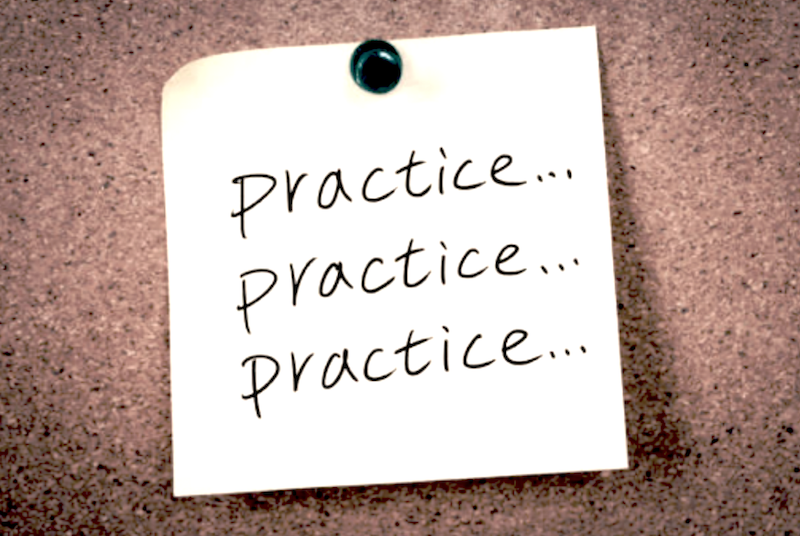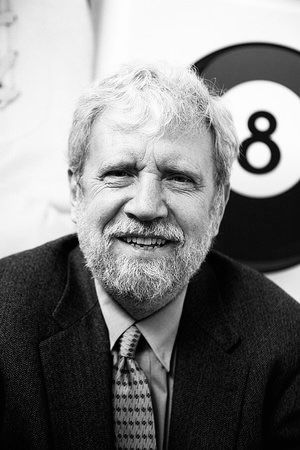Traits of Deliberate Practice
Some forms of practice are more effective than others.

In 1908 Johnny Hayes set the world record for the Marathon in 2 hours, 55 minutes, and 18 seconds. Today, the world record is held by Eliud Kipchoge at 2 hours, 1 minute, and 39 seconds - almost an hour faster than the original record.
In 1973 David Richard Spencer memorized more digits of pi than any person before him at 511 digits. The current world record is held by Akita Haraguchi, who recited 100,000 digits from memory which took him over 16 hours and 30 minutes to complete.
Take some time and browse a Guinness World Record book, and you will find record after record continually being broken. We have a tremendous ability to make improvements once we know what is possible. Athletes and highly competitive performers have figured out strategies to consistently improve their abilities to what would have been impossible decades ago.
But many of these techniques have not found their way into organizations and working lives, leaving many to feel stuck in their career and personal development.

Psychologist Anders Ericsson was an internationally recognized expert in human performance. He devoted his career to understanding exactly how practice works to create new and expanded capabilities, with a particular focus on those who have become among the best in the world at what they do. In his book Peak: Secrets from the New Science of Expertise he outlines key traits evident in this type of practice and gives reasons why most people struggle to improve their skillsets.
He writes that we all follow the same pattern with any skill we learn, from riding a bike to cooking. We start with a general idea of what we want to do, get some instruction from a teacher or book, practice until we reach an acceptable level, and then let it become automatic.
Once you have reached this satisfactory skill level and automated your performance, you have stopped improving. People often misunderstand this because they assume that they will get better at it if they continue doing something. But research has shown that generally speaking, once a person reaches acceptable performance and automaticity level, the additional years of practice don't lead to improvement.
For example, there are studies where doctors who have been in practice for twenty or thirty years do worse on specific objective measures of performance than those who are just two or three years out of medical school.
Ericsson argues that to improve, you have to practice with purpose on something specific. You have to get outside your comfort zone in a focused way with clear goals, a plan for reaching those goals, a way to monitor your progress, and figuring out a way to maintain your motivation.
Experiment
One of Ericsson's students named Steve was discouraged only a few days into an experiment set up to test his ability to remember random digits. There is a strict limit to the number of items a person retains in short-term memory, which the brain uses to hold on to small amounts of information for a brief period of time. For example, if a friend gives you his address, it's your short-term memory that holds on to it long enough to write it down. You only remember longer sequences by transferring them to long-term memory, which has the same limitations.
The idea for this experiment came from an obscure paper Ericsson had discovered while searching through old scientific studies. With practice, this research showed that someone could improve the number of digits they remembered using only their short-term memory. For example, the study documented that one student improved from an average of 9 digits to 13 while another had gone from 11 to 15. Ericsson wanted to understand how and what methods someone used to make that type of improvement.
The experiment was simple; Ericsson started by reading his student a random five-digit string at one per second (too little time to move into long-term memory.) Then, if the student got it right, he read out a six-digit string, then seven, and kept going until the student got it wrong, which Ericsson then dropped a few digits to build back up. This way, the student was regularly challenged between what he could and couldn't do.
On the fourth day of the experiment with Steve, he was stuck at what psychologists had found to be the limits of short-term memory. After four hour-long sessions, Steve could reliably recall a seven-digit string. He usually got eight digits with no problem, nine was hit or miss, and ten was never. Perhaps this would be as far as he could go.
But the next day, something happened. Steve found a way to breakthrough. He had easily moved up to nine digits which is where he was getting stuck. Ericsson read out a ten-digit number, "5718866610" to Steve's surprise, he got right! He missed the following string with eleven digits, so they dropped back down to nine.
After a few more tries at nine and ten digits. Ericsson read off an eleven-digit string "90756629867" this time, Steve repeated the whole thing without any problems. That was two digits more than he had ever gotten. After spending time dealing with the frustration of being stuck, his mind found a way to breakthrough.
From that point on, Steve slowly but steadily improved his ability to remember longer strings of digits. Every wall he hit, he had to figure out new methods to remember longer strings.
By the 60th session, he was able to remember twenty digits consistently. After 100 sessions, he could remember up to forty. Finally, after 200 sessions, he was able to reach eighty-two digits.

Ericsson would do this experiment with other participants and had one person eventually get to over one hundred digits. Through these experiments and lifelong study, he identified practice traits that work best.
He coined the term "deliberate practice" and believes it's the gold standard for improvement. Applying the below traits will help you design practice methods in any area.
Traits of Deliberate Practice
- Deliberate practice develops skills that other people have already figured out, and effective training techniques have been established. Therefore, the practice regime should be designed and overseen by a teacher or coach familiar with expert performers' abilities and expert performers' abilities and how those abilities can best be developed.
- Deliberate practices take place outside one's comfort zone and require a student to try things that are just beyond their current abilities constantly. Thus it demands near-maximal effort, which is generally not enjoyable.
- Deliberate practice involves well-defined specific goals and often involves improving some aspect of the target performance. Once an overall goal has been set, a teacher or coach will develop a plan to make a series of small changes to add to the desired, more significant change. This allows a performer to see that the training has improved their performance.
- Deliberate practice requires a person's full attention and conscious actions. It isn't enough to follow a teacher or coach's direction. The student must concentrate on specific goals for their practice activity to make adjustments to control practice.
- Deliberate practice involves feedback and modification of efforts in response to that feedback. Early in the training process, much of the input will come from the teacher or coach, who will monitor progress, point out problems, and offer ways to address those problems. With time and experience, students must learn to monitor themselves, spot mistakes, and adjust accordingly.
- Deliberate practice both produces and depends on effective mental representations. Improving performance goes hand in hand with improving mental representations; as one's performance improves, the representations become more detailed and effective, making it possible to improve even more. Mental representations make it possible to monitor how one is doing, both in practice and actual performance. They show the right way to do something and allow one to notice when doing something wrong and to correct it.
- Deliberate practice usually involves building or modifying previously acquired skills by focusing on particular aspects and working to improve them specifically. Over this time, step-by-step improvement will eventually lead to expert performance. However, because new skills are built on top of existing skills, teachers must provide beginners with the correct fundamental skills to minimize the student's chances of relearning those fundamental skills later at a more advanced level.
Sources
- Peak: Secrets from the New Science of Expertise by Anders Ericsson
